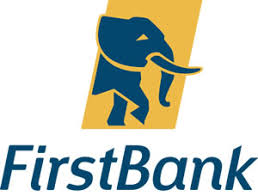‘Non-interest banking, panacea to financial inclusion in Nigeria’

Experts all over the country have admitted the need for a robust financial system that promotes financial inclusion and enhance the use of financial services across the country.
Avanti, e.Stream to improve broadband penetration across Nigeria
This is due to the fact that financial services and other e-payment platforms have made banking and financial service easier for customers in a bid to enhance efficiency encourages cashless banking and transactions.

Experts argue that many Nigerians are not financially included because of interest rates and other procedures involved in bank transactions which are hardly accessible in rural areas and the hinterlands
EFINA Access to Financial Services in Nigeria Survey 2018 data, 36.6 million adults representing 36.8 per cent of 99.6 million Adult -population in Nigeria are financially excluded. Of particular concern, 62per cent of the 23 million adults in the North West and 55per cent of 12 million adults in the North East is financially excluded.
Also, data obtained from the Central Bank of Nigeria (CBN), about 31 million Nigerians have been captured under the Bank Verification Number (BVN) project.
The CBN data shows that these Bank Verification Numbers were linked to 43,959,282 bank accounts across the country.
According to the apex bank, the BVN project aimed at ensuring a unique identifier in the Nigerian banking industry.
The CBN also said that the objectives of the project is to increase access, convenience, service levels across the industry; enable greater financial inclusion and integration of financial services into the economy, with its attendant positive impact on economic development.
However, a World Bank Global Findex Database report on financial inclusion says that more than 60 million Nigerians are without bank accounts. The report, titled The Global Findex Database 2017: Measuring Financial Inclusion and the Fintech Revolution used data from a survey carried out in 144 countries, in collaboration with the Bill and Melinda Gates Foundation and Gallup Inc.
According to the report, there are about 1.7 billion adults globally that are unbanked (Don’t use formal banks or semi-formal microfinance institutions to save or borrow money) even though more than half that number could access digital financial services.
This indicates that the 31 million Nigerians linked with bank verification represents just 35% of the total population of Nigerians that do not use bank services.
In a bid to achieve a robust financial system and promote public awareness in deposit insurance and enhance financial inclusion in the financial services industry, the Nigeria Deposit Insurance Corporation (NDIC) gathered stakeholders in Abuja recently to chart the way forward in improving financial on Non-Interest Banking in Nigeria.
The stakeholder engagement conference tagged ‘Sustainable Islamic Finance in Nigeria: The Deposit Insurance Perspective’ primarily driven to brainstorm on how to bring more Nigerians into the banking system.
According to findings of the Central Bank of Nigeria’s National Financial Inclusion Strategy Review, low or non-adoption of financial products was due to cultural and religious factors especially in the Northern part of the country.
The above concerns and other several issues pertinent to the Islamic Financial Services Industry formed the subjects of deliberations during the Conference
The engagement which witnessed contributions from Managing Directors of Jaiz Bank, Taj Bank and Tijarah Non Interest MFB, heads of Non-Interest Windows of Sterling and SunTrust banks.
Contributions from Central Bank of Nigeria, Securities and Exchange Commission, National Insurance Commission, National Pension Commission on the roles which the different agencies as regulators can play to promote and enhance financial inclusion as well as sustaining Non-Interest finance in the country.
Non-Interest Bank in Nigeria
Since its establishment in 2012, Non-Interest banking has gotten a boost with the introduction of JAIZ bank, Windows of Stanbic IBTC and Sterling banks, including three Islamic Micro-finance banks. Whilst the closure of Stanbic IBTC Islamic banking Window is lamentable, the recent licensing of TAJ Non-Interest bank is welcomed.
During the seven-year period, the total assets of Non-Interest banks and Windows grew from N66.96 billion in 2015 to N186.46 billion.
As of June 30, 2019, the share of Total Assets of Non-Interest banking segment against Total Assets of the banking industry stood at a paltry 0.49 per cent as of June 30, 2019. Similarly Total Deposits were reported at N121.68 billion or 0.53per cent of the industry total during the same period.
Total Financing was is being placed at N59.81 billion, 0.38per cent of the industry total as at the end of the quarter, June 30, 2019. The impact of such performance is clearly insignificant.
Enhancing financial inclusion through non-interest banking
Experts and regulator, who were at the stakeholder engagements organized by the Nigerian Deposit Insurance Corporation (NDIC) advocated for collaborations between all the Operators of Non-Interest institutions in Nigeria.
According to industry players, the Association of Non-Interest Financial Institutions needed to collaborate rather than compete in order to promote and sustain the growth of Non-Interest Banking in Nigeria;
Regulators, especially the CBN were advised to address the Liquidity challenges faced by the NIFIs on investible instrument particularly short-term investible windows for the NIFIs; urging Regulatory and Supervisory Institutions to build requisite capacity for effective monitoring and supervision of the NIFIs as well as Continuous capacity building among operators.
In the same vein, continuous public enlightenment on the benefits of Non-Interest Banking and its high potential as a tool for financial inclusion; Setting up of an appropriate committee for regular interactions among all stakeholders in the Non-Interest Financial Institutions NIFIs segment of the financial services industry; establishment and application of appropriate code of ethics for the institutions in line with the injunctions of the Shariah was recommended as one of the measures to promote non-interest banking.
Accordingly, experts and participants recommended that the CBN facilitate the introduction of non-interest structures for accessing all intervention funds such as Anchor Borrowers schemes by Nigerians through NIFIs; Establishment of Non-Interest Deposit Money banks and Non-Interest Microfinance banks to take care of the huge underserved segment of the population in line with the financial inclusion drive of the Government.
Commercial banks efforts
In its quest to support deepening of financial inclusion across the country, FirstBank is channelling its resources to reach those at the bottom of the pyramid through its agency banking.
The tier-one bank has over 31,000 agents spread across Nigeria with 9,000 assigned to provide financial services to the highly excluded Northern region.
According to the MD/CEO, First Bank of Nigeria Limited, Adesola Adeduntan, the bank took it upon itself as part of their strategic plan to be the bank that can be the right partner to the CBN and the government by helping to achieve the right social impact.
“If there is that bank on the ground to help the country to address the seeming geographical gap in terms of financial inclusion, it is FirstBank, because we are already doing a lot,” Adeduntan had said.
Similarly, Access Bank has introduced a financing scheme for procurement of phones for more Nigerians to get connected to more businesses online and deepen financial inclusion.
Victor Etuokwu, Executive Director, Retail Banking, said in a statement in Lagos, stated that the loan would provide more Nigerians with access to credit under its Device Finance scheme.
The Device Finance scheme is designed to provide customers on salary income with the opportunity to purchase smartphones of their choice and pay over a period of 12 months.
“Access Bank has taken the initiative to lead the digitization of lending in Nigeria and wants every customer to benefit from the modern connected lifestyle.
“Through our revolutionary and ground-breaking credit schemes such as Device Finance, we will see more Nigerians get connected to do more business online and enjoy social lifestyle of their choice”, he said.








